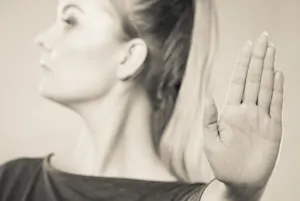What Makes This Word Tick
The word "voyeuristic" carries an air of intrigue, hinting at secretly observing others, often in a manner that's more curious than appropriate. Its roots are in the word "voyeur," relating to someone who derives pleasure from watching others in private situations. Voyeuristic suggests a peculiar thirst for seeing something hidden or behind curtains.
If Voyeuristic Were a Person…
Imagine a character with a penchant for people-watching — always perched discreetly at the back of the room, observing the world unfold. They find fascination not in what's being said, but in what’s left unsaid, capturing silent stories in glances and gestures that others may overlook.
How This Word Has Changed Over Time
While "voyeuristic" maintains its core connotation of observing, particularly in secret, its application has broadened. Originally more scandalous, it now features in everyday contexts like reality TV, where audiences indulge their voyeurism under the guise of entertainment.
Old Sayings and Proverbs That Use Voyeuristic
You won’t find "voyeuristic" peppered through old sayings, but its spirit echoes in phrases like “curiosity killed the cat.” It addresses a similar mischief in peeking where one perhaps shouldn’t, capturing that very human urge to know more.
Surprising Facts About Voyeuristic
"Voyeuristic" might seem niche, but it’s central in studies of media consumption. Many documentaries and reality shows leverage our voyeuristic tendencies, drawing us into worlds we might never experience otherwise. It's an intriguing blend of human nature and entertainment.
Out and About With This Word
"Voyeuristic" pops up everywhere from art galleries to digital platforms. In photography and film, it describes the aesthetic where viewers receive glimpses of intimate or everyday moments, fostering an emotional and often captivating connection.
Pop Culture Moments Where Voyeuristic Was Used
Film and television have explored voyeurism long before reality TV. Alfred Hitchcock’s "Rear Window" is a classic example, threading voyeuristic intrigue into its plot. More recently, series like "Big Brother" bring this notion straight into living rooms, celebrated rather than critiqued.
The Word in Literature
In literature, "voyeuristic" might find itself nestled in thrillers or psychological novels, where characters stumble into forbidden knowledge. Think of works that explore the murky boundaries between observer and participant, suggesting a narrative thrill ride of unspoken secrets.
Moments in History with Voyeuristic
The invention of the telescope in the 17th century transformed humanity's voyeuristic reach beyond earthly confines, allowing for heavenly peeping. But back on earth, it was those early peepers in hiding places that fueled scandalous reputations and public intrigue.
This Word Around the World
Culturally, voyeuristic tendencies have different expressions. In Japan, "peeping tom" stories have a cultural thread, hinting at curiosity's double-edged sword. In films and media, voyeurism is universal, suggesting a shared, albeit secretive, part of the human experience across borders.
Where Does It Come From?
"Voyeuristic" is derived from the French "voyeur," meaning "one who looks or observes." Its journey into English carried with it a certain intrigue, fascination, and sometimes frowned-upon curiosity, reflecting an age-old desire to see the unseen.
How People Misuse This Word
People occasionally toss "voyeuristic" into mundane scenarios, forgetting its more nuanced meaning of secrecy or boundary-crossing. Just being observant at your favorite café doesn’t quite cut it — this word demands a hint of secrecy or guilt.
Words It’s Often Confused With
Exhibitionist: While one shows off, the other is clandestinely watching.
Curious: A simple interest versus a more intense, secretive observation.
Spectator: Observes with permission, missing the secretive edge of voyeurism.
Additional Synonyms and Antonyms
Synonyms for "voyeuristic" might include covert, secretive, or prying. Antonyms could be open, participatory, or transparent — words that embrace visibility and mutual consent.
Want to Try It Out in a Sentence?
"Despite its idyllic setting, the novel’s voyeuristic tendencies highlighted the darker truths behind suburban facades, threading a captivating tension throughout the storyline."
















